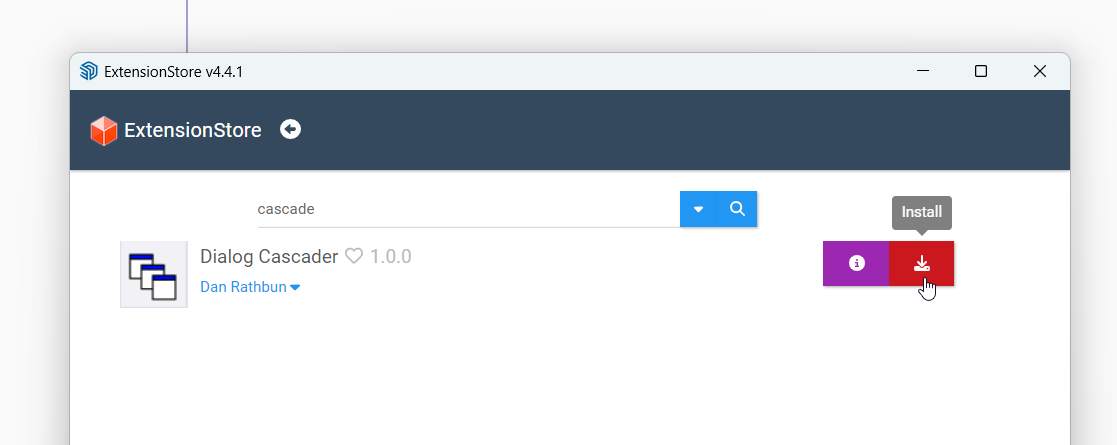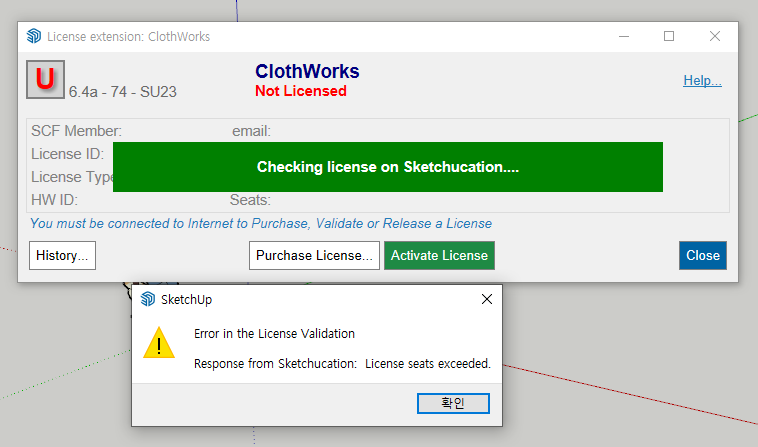[Plugin] ClothWorks v1.8.0 - 28 Apr 2024
-
@Anton_S Why not fix the problem of the bar remaining active on Mac !!!
if tb.get_last_state == TB_NEVER_SHOWN tb.show else tb.restore end -
@FlawinneF Thanks for that tip. I never knew about the get_last_state or restore. Will utilize in next release
-
@Anton_S
I use this usuallytb.show if tb.get_last_state.abs == 1 # TB_VISIBLE/NEVERHas the same result...
-
Version 1.8.0 released.
- Fix adaptive grid not working properly for some models on Mac OS X
- Show toolbar properly on Mac OS X. Thanks @FlawinneF and @TIG
-
Sorry I didn't, say thank you sooner, thank you for everything

-
@Anton_S Hello, Mr. Anton. I don't know when you will initiate the redevelopment of MSPhysics. As far as I know, countless people are looking forward to this project. Alternatively, you can develop a plugin that can partially implement certain functions.
For example, a simulation tool that can implement simulation functions similar to fusion360 and SolidWorks may not require embedding a physics engine (I'm not sure), but only adding axes and motors, as well as collision detection. Used for designing machinery, mechanical gif diagrams, and checking the rationality of mechanical design in sketchup. I hope to receive your reply. -
Anton
ClothWorks is amazing
I still use MSPhysics because nothing else is as good at what it does
Can you supply me with code to- turn layers on and off
- hide/unhide objects
for me to use with my variables, keydown,, ontouch and ontick events in my MSPhysics scripts
old msphysics video example here...
https://www.youtube.com/watch?v=MTfpvgY1HBk
-
Hello
i am a huge fan of the plug-in, however i ran into troubel. Recently when i try to use it, the UI Window its not visible - not sure if its opening, but the app runs and i can play the cloths. I allready try to reinstallations and restarts. Any idea whre can i find back my UI Window?
I am using multiple screens - also unpluging and classical Windows 11 windows search didnt help. -
@Nicole_M_W If click the toolbar icon fails to display the dialog then open the ruby console and click the icon and see it there are errors.
But since we don't know what version of SketchUp or Clothworks you are running its hard to say more really.
The also an extension by Dan Rathbun that resets dialog positions if they are off screen. Its call Dialog Cascader. Search for cascade and you'll find it in our Sketchucation Tools in SketchUp

-
thank you! Excellent the Dialog Cascader solved my Problem right away. UI is back.
I am on
Clothworks 1.8.0a
Skechup Pro SketchUp Model૿{24.0.553just downloaded and installed the 24.0.0594 but i already applied your cascade solution so i can't tell if it was because of the missing update.
thank you for your fast help!
-
@Nicole_M_W no probs. Dialogs playing hide and seek is common. Dan’s tool is a lifesaver
-
@xinige said in [Plugin] ClothWorks v1.8.0 - 28 Apr 2024:
Thank you for this inspirational message! I got to get mpshysics back to life!
-
@Anton_S
Did I read that correctly? - "I got to get mpshysics back to life!"
Yes! Yes! Yes!
That would be fantastic. When will the time come? -
컴퓨터 포멧을 하고난후로 라이센스 인증이 되질안네요
해결방법을 알수 있을까요?



-
All of the 3 seats are allocated, presumably using your old computer[s] details.
You need to free up the seats so that you can reactivate them for your new computer[s].
If you have the latest versions of the extension and the SketchUcation toolset [for the licensing] installed, and SketchUp restarted to sync, you should be able to do this using the submenu items for the extension under the Tools menu.
You can also manage each of your licenses by logging in to SketchUcation.com and using the menu item PluginStore > My Licenses... page...3개의 자리는 모두 할당되었으며, 아마도 이전 컴퓨터의 세부 정보를 사용하고 있을 것입니다.
새 컴퓨터에서 다시 활성화할 수 있도록 자리를 비워야 합니다.
최신 버전의 확장 프로그램과 SketchUcation 도구 세트[라이선스용]가 설치되어 있고 SketchUp을 다시 시작하여 동기화한 경우 도구 메뉴 아래에 있는 확장 프로그램의 하위 메뉴 항목을 사용하여 이 작업을 수행할 수 있습니다.
SketchUcation.com에 로그인하여 메뉴 항목 PluginStore > 내 라이선스... 페이지를 사용하여 각 라이선스를 관리할 수도 있습니다. -
Amazing plugin, great job
 I wanted to purchase a 1 seat license, since I wont be using Sketchup that often, but it is not currently available on the list, would it be available maybe in future?
I wanted to purchase a 1 seat license, since I wont be using Sketchup that often, but it is not currently available on the list, would it be available maybe in future?
many thanks -
@Sara37 said in [Plugin] ClothWorks v1.8.0 - 28 Apr 2024:
but it is not currently available on the list, would it be available maybe in future?
Advertisement







